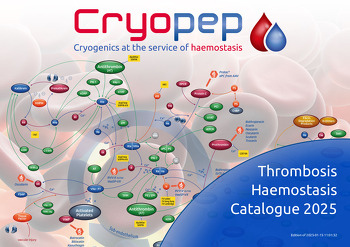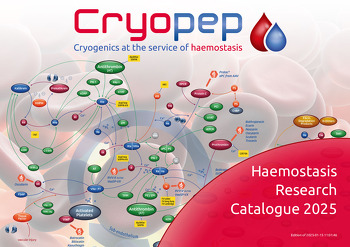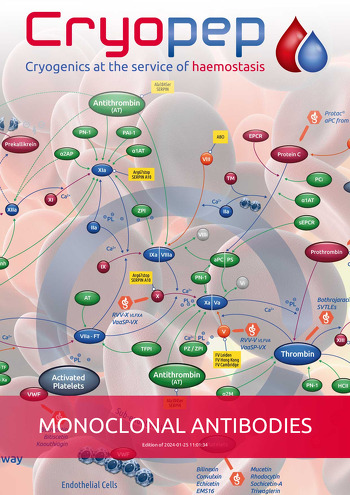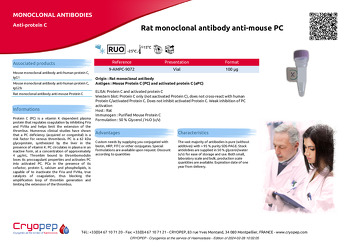HEMOSTASIS COAGULATION RESEARCH REAGENTS MONOCLONAL ANTIBODIES ANTI-PROTEIN C
Rat monoclonal antibody anti-mouse PC
Origin: Rat monoclonal antibody
Antigen: Mouse Protein C (PC) and activated protein C (aPC)
Application: ELISA: Protein C and activated protein C
Western blot: Protein C only (not aactivated Protein C), does not cross-react with human Protein C/activated Protein C. Does not inhibit activated Protein C. Weak inhibition of PC activation
Molecular weight (Da): 150 000
Extinction coefficient: 14.0
Host: Rat
Immunogen: Purified Mouse Protein C
Formulation: 50 % Glycerol / H₂O (v/v)
Advantages
Custom needs by supplying you conjugated with biotin, HRP, FITC or other conjugates. Special formulations are available upon request. Discount according to quantities
Informations
Protein C (PC) is a vitamin K dependent plasma protein that regulates coagulation by inhibiting FVa and FVIIIa and helps limit the extension of the thrombus. Numerous clinical studies have shown that a PC deficiency (acquired or congenital) is a risk factor for venous thrombosis. PC is a 62 kDa glycoprotein, synthesized by the liver in the presence of vitamin K. PC circulates in plasma in an inactive form, at a concentration of approximately 4 μg/mL. Thrombin bound to thrombomodulin loses its procoagulant properties and activates PC into activated PC. PCa in the presence of its cofactor, protein S, calcium and phospholipids, is capable of to inactivate the FVa and FVIIIa, true catalysts of coagulation, thus blocking the amplification loop of thrombin generation and limiting the extension of the thrombus.
Documentation
Download the product sheetPrice list, safety data sheets and notices are accessible to our registered customers.
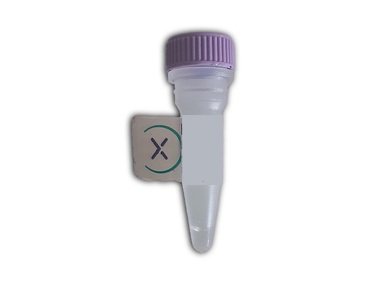





References
| 9-AMPC-9072 | Vial | 100 µg |













